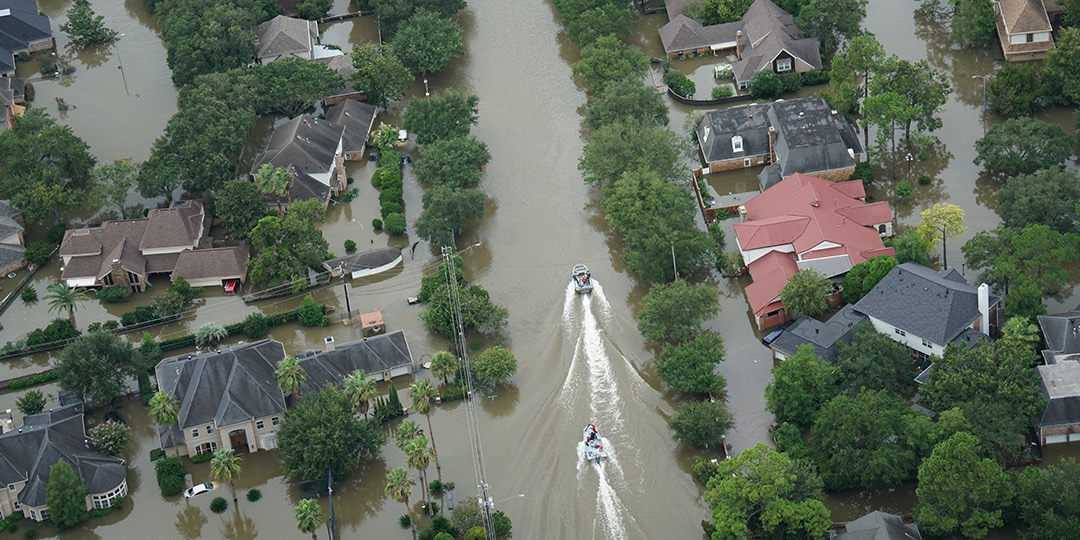October 2, 2024
RALEIGH, N.C. – With recovery efforts just beginning in western North Carolina, the North Carolina Nurses Association (NCNA) and the North Carolina Foundation for Nursing (NCFN) have launched a campaign to financially assist nurses impacted by Helene. The NCFN – Nurse Recovery Fund is designed to quickly distribute money directly to nurses suffering from loss or damages due to catastrophic flooding, wind, or landslides in the western parts of North Carolina.
“We are not the kind of organization that can mobilize a largescale in-person response to a disaster – but what we can do really well is support the nurses living through these unimaginable circumstances,” said NCNA President Trish Richardson, MSN, BSBA, RN, NE-BC, CMSRN. “Some of our colleagues have likely lost as much as anyone else. This part of the state was already experiencing provider shortages and limited access to care, so it is critical that those nurses feel valued and appreciated. We want to do everything we can to help them get back on their feet so they can continue to deliver quality, compassionate healthcare for their fellow North Carolinians.”
People interested in donating can click here: https://portal.ncnurses.org/donate-now
Nurses are a vital part of the healthcare system, but surveys have shown that they often feel taken for granted. An important goal of this campaign is to highlight that a weather disaster is yet another challenge in a long list of issues already straining the nursing profession: the coronavirus pandemic, a nursing shortage, increased workplace violence, and worrisome burnout rates, to name a few.
Under normal circumstances, NCFN raises money primarily to fund scholarships for nursing students. For a limited time, however, all money collected by NCFN will be diverted to the NCFN – Nurse Recovery Fund and given directly to the nurses in need. NCNA is donating all of the staff time required to administer the program.
NCNA was able to mobilize its Helene response quickly, using the infrastructure it has already established six years ago in the wake of Hurricane Florence. That 2018 campaign generated more than $25,000 that NCNA and NCFN distributed directly to more than 130 nurses in the southeastern part of the state. Donations to this special fund will be distributed to actively-licensed Registered Nurses in North Carolina who have been impacted by Helene based on a sliding scale of needs.
Click here for more information and to donate.
Click here to share our post on Facebook.
Click here to share our post on X/Twitter.
Click here to share our post on Instagram.
Click here to share our post on LinkedIn.
Click here to share our post on Threads.
ABOUT NCNA
As the leading professional organization for North Carolina’s registered nurses, we equip nurses at all stages to thrive in an ever-changing healthcare environment. NCNA helps keep North Carolina nurses on the cutting edge of nursing practice, policy, education, and more. Join us as we work to advance nursing and ensure high-quality healthcare for everyone.
Established in 1902, NCNA provides continuing education, networking and legislative advocacy for registered nurses throughout North Carolina. For more information, please visit www.ncnurses.org.
MISSION STATEMENT
The North Carolina Nurses Association serves the changing needs of its members, addresses nursing issues, and advocates for the health and well-being of all people.


 Article from
Article from  told the world who she was and what she represented in the healthcare community. When she retired from being a nurse, Mary wasn’t sure what her next step would be, but she knew she wanted to continue to help people.
told the world who she was and what she represented in the healthcare community. When she retired from being a nurse, Mary wasn’t sure what her next step would be, but she knew she wanted to continue to help people.